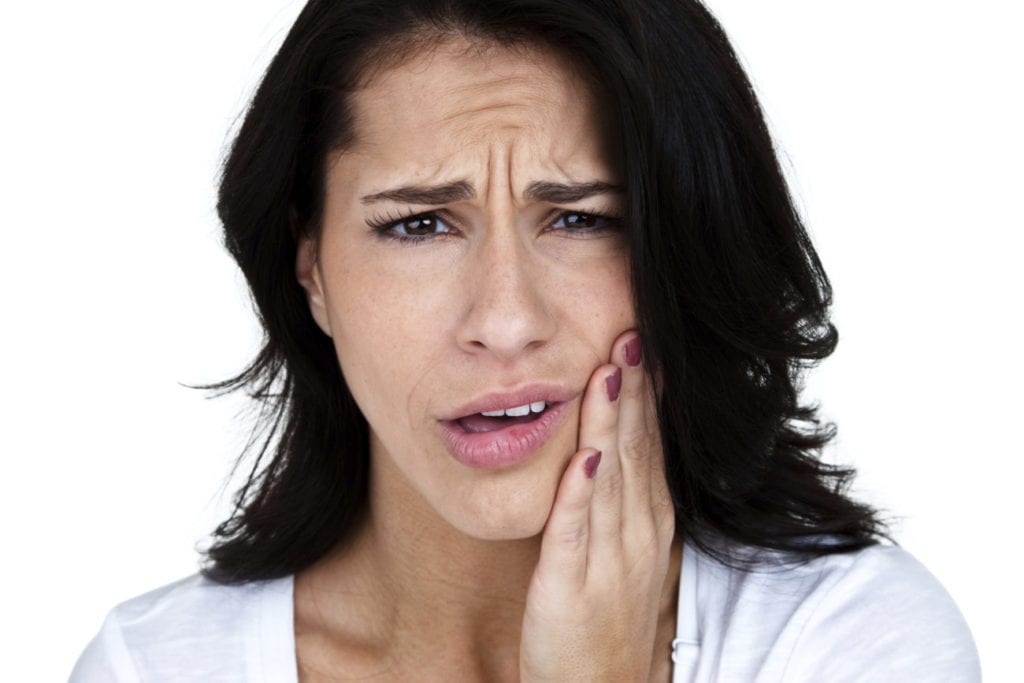Bruxism and TMJ
Teeth grinding is a common problem for many people. For most, it occurs during the night while they are sleeping. In addition to damaging teeth, prolonged teeth grinding can damage the function and health of the jaw joint and facial muscles. A common underlying cause of Temporomandibular Joint Disorders (TMD & TMJ) is teeth grinding. This condition puts added tension on the facial muscles and can permanently damage the delicate jaw joint.
TMD is a chronic pain disorder that is caused by the misalignment or malfunction of the temporomandibular joint. The TMJ is the joint that holds the jaw to the base of the skull. This essential and delicate joint can easily be damaged in patients with bruxism.

Preventing Teeth Grinding, Restoring Comfort
Preventing teeth grinding from occurring can prevent long-term damage to the jaw and provides relief from painful daily symptoms. Bella Smiles offers custom oral sleep appliances for the treatment of bruxism.
Oral sleep appliances are custom-fabricated to fit comfortably and securely in the mouth. Patients will wear them while they sleep. The device prevents the upper and lower jaw from grinding together and allows the jaw muscles to fully relax and rebuild during sleep.
For some patients, the oral sleep appliance can reverse the internal damage caused by years of grinding. Other patients may require additional restorative treatments to fully correct damage caused by bruxism. Dental crowns, veneers, or bonding may be recommended to repair chipped, cracked, or overly worn-down teeth.
Dr. Lotardo, Pop, or Caesar may also make personalized recommendations on how to release tension and stress. It is commonly believed that teeth grinding is caused by daily stressors and is exasperated during times of high duress.
Meditation, exercise, yoga, or other healthy outlets for releasing tension can help patients with bruxism find a long-term solution to their facial pain. If you notice yourself clenching your jaw or have symptoms of teeth grinding, be sure to notify our team during your next dental exam.
As with all dental concerns, early intervention can help you prevent further damage to your teeth or gums. If you suffer from TMJ issues and teeth grinding, give us a call to schedule an evaluation today.
Teeth Grinding FAQs
When should I go to the dentist for teeth grinding?
If you are concerned that your teeth grinding may be causing issues or damage it is a good idea to see your dentist. They can assess your bite, what may be causing you to grind your teeth, treat, and create a protective mouthguard to protect against further damage.
What damage can grinding teeth cause?
Frequent teeth grinding can lead to headaches, pain in the jaw, toothaches, and damage to the surface of teeth. It will progressively eat away at the enamel on a patient’s teeth and can cause chipping and cracking.
What does teeth grinding pain feel like?
Teeth grinding pain is typically described as an achy pain that feels like built-up tension. Some patients may describe sharp pains in their jaw joints when chewing or speaking.
